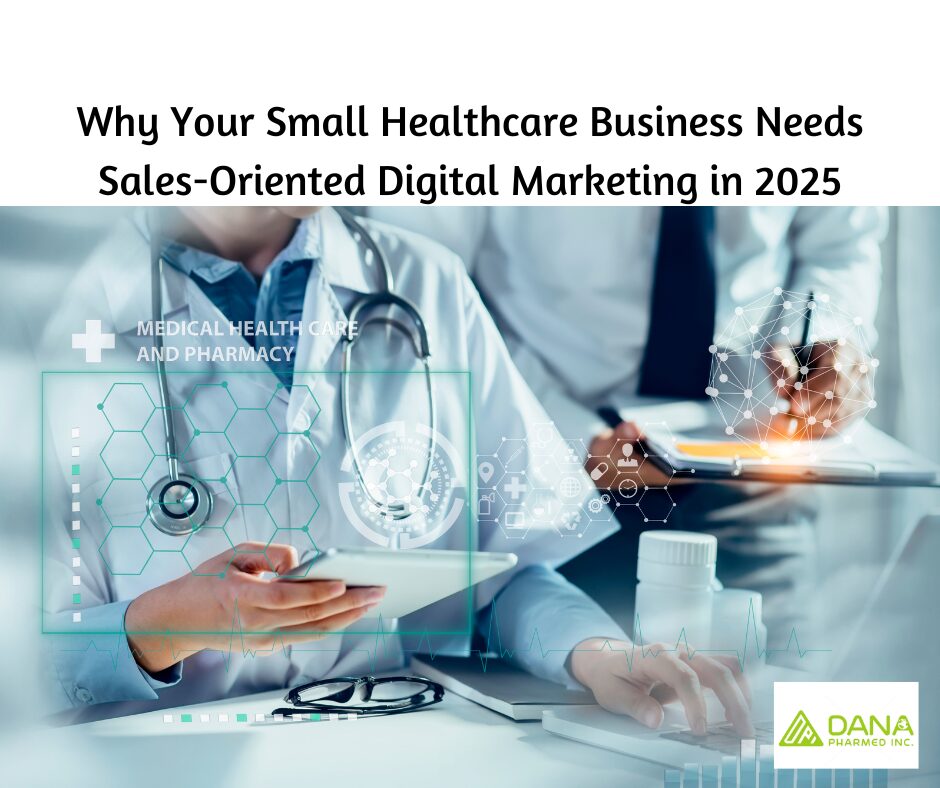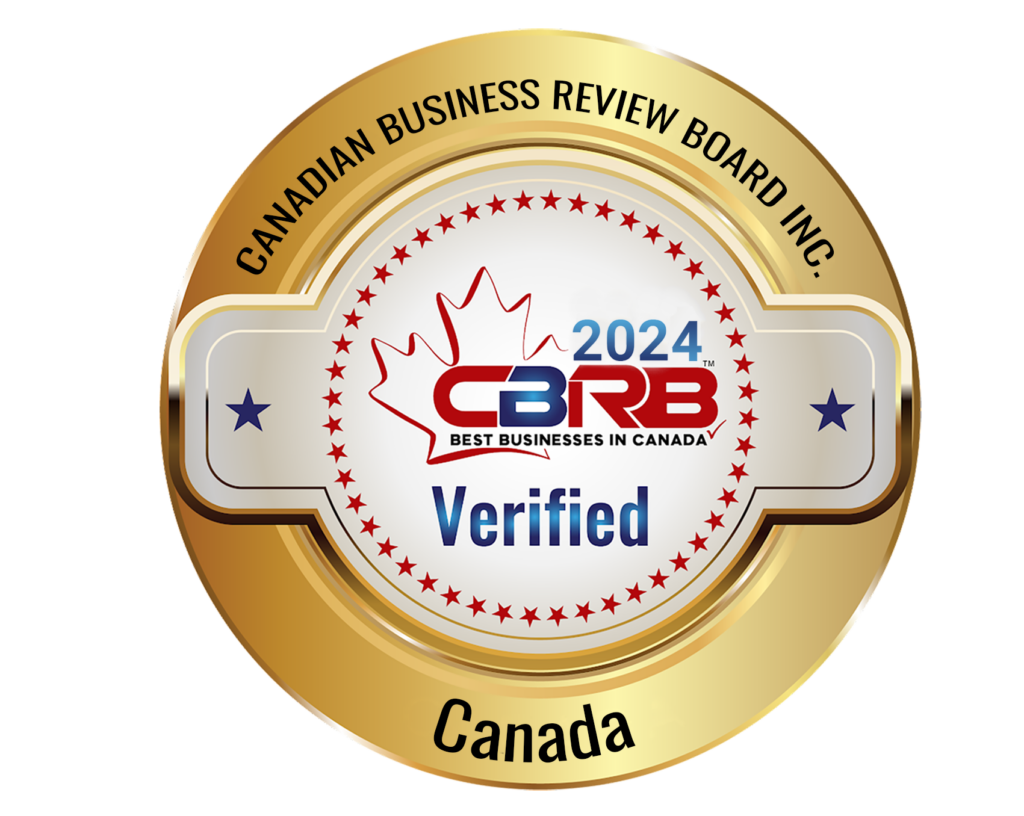The current digital landscape in healthcare is rapidly evolving, with new technologies and trends shaping the way small healthcare businesses operate and connect with patients. From telemedicine and remote patient monitoring to personalized health apps and wearable devices, there are endless opportunities for healthcare businesses to connect with patients and improve their overall experience. In order to stay competitive in 2025 and beyond, small healthcare businesses must prioritize sales-oriented digital marketing strategies to reach their target audience effectively and drive revenue growth.
By integrating sales-oriented strategies into digital marketing, small healthcare businesses can effectively attract and engage potential customers, ultimately leading to increased conversions and revenue. Understanding the customer journey is crucial in tailoring marketing efforts to meet specific needs and preferences. Utilizing data analytics and customer insights, businesses can create targeted campaigns that resonate with their audience and guide them towards making a purchase. Moreover, a strong call to action in marketing materials can prompt potential customers to take the next step, such as scheduling an appointment, signing up for a service, or making a purchase. In the end, prioritizing sales-oriented digital marketing strategies allows small healthcare businesses to position themselves for success in a competitive and digital-driven marketplace.
Understanding Sales-Oriented Digital Marketing
By utilizing various online platforms and tools, these businesses can effectively reach their target audience and drive engagement. One key aspect of sales-oriented digital marketing is creating a strong online presence through a well-designed website, active social media channels, and targeted email campaigns. By consistently delivering valuable content and promotions to their audience, small healthcare businesses can build trust and credibility, leading to increased conversions and customer loyalty.
- Lead generation is a crucial part of sales-oriented digital marketing, as it involves capturing the interest of potential customers and converting them into leads. This can be achieved through various strategies such as offering free resources or discounts in exchange for contact information. Once leads are captured, the next step is conversion optimization, which involves analyzing and improving the sales funnel to increase the likelihood of converting leads into paying customers. By continually refining their digital marketing strategies based on data and analytics, small healthcare businesses can effectively drive sales and grow their customer base.
- An essential aspect of digital marketing for small healthcare businesses involves utilizing social media platforms to engage with potential customers and enhance brand awareness. Creating engaging content that resonates with the target audience helps businesses attract and retain followers who could later become customers. Moreover, paid advertising on platforms such as Facebook and Instagram enables businesses to expand their audience reach and increase website traffic. Utilizing social media allows small healthcare businesses to enhance their online presence and reach a wider customer base.
Challenges Small Healthcare Businesses Face Without Digital Marketing
One of the key differences between digital marketing and traditional marketing approaches is the level of interactivity and engagement that is possible with online platforms. With digital marketing, businesses have the opportunity to directly engage with their audience through social media, email campaigns, and other online channels. This allows for more personalized and targeted communication, leading to a higher likelihood of conversion. However, small healthcare businesses may face challenges in effectively implementing digital marketing strategies due to limited resources, lack of expertise, and strict regulations in the healthcare industry. These challenges can make it difficult for small healthcare businesses to compete with larger, more established companies in the digital space.
- Limited patient reach can be addressed by implementing targeted online advertising strategies and engaging with customers through social media platforms to expand outreach. Without the ability to effectively reach their target audience through digital marketing, these businesses may miss out on valuable opportunities to grow their customer base and increase revenue. In order to overcome this obstacle, small healthcare businesses must find creative ways to maximize their resources and leverage the power of online marketing to expand their reach and stay competitive in the industry.
- Inability to compete with larger organizations. This can lead to decreased profitability and potential closure of the business. Investing in targeted online advertising allows small healthcare businesses to reach a wider audience and increase brand visibility. Engaging with customers through social media platforms enables businesses to build relationships and foster customer loyalty, ultimately attracting a larger client base. Additionally, focusing on building strong relationships with current clients through personalized care and excellent customer service can help retain customers and encourage positive word-of-mouth referrals. Ultimately, by embracing digital marketing strategies and prioritizing customer satisfaction, small healthcare businesses can thrive and succeed in a competitive market.
- For example, conducting regular customer surveys and analyzing website analytics can help small healthcare businesses pinpoint areas where they can enhance customer engagement and retention strategies. By consistently monitoring and analyzing customer feedback and data, healthcare businesses can identify areas for improvement and address any missed opportunities for engagement and retention. This proactive approach can help businesses stay ahead of competitors and continuously enhance the customer experience. By staying adaptable and responsive to the needs of their client base, small healthcare businesses can establish themselves as trusted providers in the industry and solidify their presence in the market.
Benefits of Sales-Oriented Digital Marketing
In the rapidly evolving business landscape, digital marketing has become a cornerstone of successful business strategies. However, not all digital marketing efforts are created equal. For businesses, particularly in the healthcare sector, adopting a sales-oriented digital marketing approach can be transformative. This approach not only focuses on building brand awareness but also drives tangible results such as increased patient inquiries, appointments, and revenue. Below, we explore the multifaceted benefits of sales-oriented digital marketing and why it is indispensable for businesses aiming to achieve sustained growth.
1. Increased Lead Generation
A sales-oriented digital marketing strategy prioritizes generating high-quality leads that have a higher probability of conversion. By leveraging tools such as Google Ads, social media advertising, and search engine optimization (SEO), businesses can target potential clients with precision. For instance, healthcare businesses can use keyword research to target individuals searching for specific services, such as “pediatric therapy in Toronto” or “neurofeedback for ADHD.”
Key Benefits:
- Attracts the right audience based on demographics, behavior, and interests.
- Reduces cost-per-lead (CPL) by focusing on high-intent audiences.
- Improves ROI through data-driven targeting and retargeting campaigns.
2. Enhanced Customer Engagement
Sales-oriented digital marketing places a strong emphasis on building meaningful interactions with potential and existing clients. Through channels like email marketing, social media platforms, and chatbots, businesses can engage clients at various stages of the buyer’s journey. For example, a healthcare clinic can use personalized email campaigns to follow up with inquiries, share valuable health tips, or offer discounts on initial consultations.
Key Benefits:
- Builds trust and credibility with personalized communication.
- Encourages repeat engagement through relevant content.
- Facilitates faster responses to inquiries, enhancing the customer experience.
3. Improved Conversion Rates
Unlike traditional marketing methods, sales-oriented digital marketing allows businesses to track and optimize their efforts in real-time. Tools like conversion rate optimization (CRO) focus on improving the performance of landing pages, call-to-action (CTA) buttons, and overall website design to maximize the percentage of visitors who take desired actions.
Key Benefits:
- Provides actionable insights through analytics tools.
- Identifies bottlenecks in the sales funnel and resolves them.
- Encourages potential clients to take immediate action, such as booking an appointment or signing up for a service.
4. Cost-Effective Marketing
For small and medium-sized businesses, including healthcare startups, cost efficiency is crucial. Sales-oriented digital marketing enables businesses to allocate their budgets strategically, focusing on campaigns that deliver measurable results. Pay-per-click (PPC) advertising, for instance, ensures that businesses only pay for actual clicks, minimizing wasteful spending.
Key Benefits:
- Delivers higher returns on investment (ROI) compared to traditional marketing.
- Allows for flexible budgeting with scalable campaigns.
- Tracks spending and results in real-time for better financial control.
5. Better Alignment with Sales Goals
A sales-oriented approach ensures that marketing efforts are directly aligned with the company’s revenue objectives. By integrating customer relationship management (CRM) systems like Zoho or Salesforce, businesses can streamline their marketing and sales processes. This alignment ensures that every lead is nurtured effectively and transitioned seamlessly to the sales team.
Key Benefits:
- Ensures consistency in messaging across marketing and sales.
- Tracks the customer journey from initial contact to conversion.
- Provides sales teams with actionable data to close deals faster.
6. Increased Brand Visibility and Credibility
Digital marketing efforts such as SEO, content marketing, and social media campaigns contribute to improved brand visibility. A sales-oriented approach takes this a step further by focusing on positioning the business as a trusted authority in its niche. For healthcare businesses, this could involve publishing blogs on trending health topics, creating video testimonials from satisfied clients, or hosting live Q&A sessions on social media.
Key Benefits:
- Builds a strong online presence that attracts organic traffic.
- Enhances credibility through informative and value-driven content.
- Establishes the business as a go-to solution for specific client needs.
7. Data-Driven Decision Making
Sales-oriented digital marketing thrives on data. By analyzing metrics such as website traffic, email open rates, and ad performance, businesses can gain valuable insights into what works and what doesn’t. This data-driven approach enables continuous improvement and ensures that marketing strategies remain relevant and effective.
Key Benefits:
- Identifies high-performing campaigns for increased investment.
- Reduces guesswork, leading to more informed decisions.
- Adapts quickly to changing market trends and customer behaviors.
8. Scalability and Growth
Digital marketing provides the flexibility to scale campaigns as the business grows. Whether it’s increasing ad spend, targeting new demographics, or expanding into new markets, sales-oriented digital marketing ensures that growth is both achievable and sustainable.
Key Benefits:
- Adapts to the evolving needs of the business.
- Supports expansion into new geographical or service areas.
- Maintains efficiency even with increased demand.
9. Enhanced Client Retention
Acquiring new clients is essential, but retaining existing ones is equally important. Sales-oriented digital marketing employs strategies like email nurturing, loyalty programs, and exclusive offers to keep clients engaged and satisfied.
Key Benefits:
- Increases lifetime value (LTV) of clients.
- Reduces churn rates by maintaining consistent communication.
- Builds long-term relationships through personalized interactions.
10. Competitive Advantage
In today’s competitive market, standing out is more challenging than ever. A sales-oriented digital marketing strategy equips businesses with the tools and insights needed to outperform competitors. From targeted ads to superior customer service, every aspect of the strategy is designed to create a distinct edge.
Key Benefits:
- Differentiates the business through unique value propositions.
- Leverages technology and innovation to stay ahead of trends.
- Positions the business as a leader in its industry.
Sales-oriented digital marketing is not just a trend; it’s a necessity for businesses looking to thrive in the digital age. By focusing on measurable outcomes, personalized engagement, and strategic alignment with sales goals, this approach ensures that marketing efforts contribute directly to revenue growth. For healthcare businesses, adopting this strategy can mean the difference between merely surviving and truly excelling in a competitive market.
As we move into 2025, the need for sales-oriented digital marketing has never been greater. By embracing this approach, businesses can unlock new opportunities, achieve their revenue goals, and build lasting relationships with their clients. Schedule a consultation with Dana PharMed today to discover how their tailored strategies can elevate your digital marketing efforts and drive sustainable growth for your healthcare business.
Key Digital Marketing Strategies for Healthcare Businesses
- Search Engine Optimization (SEO): Ranking higher for local and industry-specific searches.This is crucial for healthcare businesses looking to attract new patients and increase visibility in a crowded market. By optimizing their website and content for relevant keywords, healthcare providers can ensure that they appear at the top of search engine results pages when potential patients are looking for their services. Additionally, SEO can help establish credibility and trust with patients, as higher rankings are often associated with authority and expertise in the field. In an industry where reputation and trust are paramount, investing in SEO is a key strategy for healthcare businesses looking to stand out and attract new patients.
- Content Marketing: Blogs, videos, and resources that educate and engage.These types of content can help healthcare providers position themselves as thought leaders in their field and provide valuable information to patients. By consistently creating and sharing high-quality content, healthcare businesses can build relationships with their audience, establish trust, and ultimately drive more traffic to their website. Content marketing also allows providers to showcase their expertise and highlight the unique services they offer, helping to differentiate themselves from competitors. Overall, a strong content marketing strategy can help healthcare businesses attract and retain patients, ultimately leading to long-term success.
- Social Media Marketing: Building a community and promoting services.Social media marketing plays a crucial role in building a community around a healthcare business and promoting its services to a wider audience. By utilizing platforms like Facebook, Instagram, and Twitter, providers can engage with patients in real-time, share valuable information, and showcase their brand’s personality. Through targeted advertising and strategic content creation, healthcare businesses can reach potential patients where they already spend their time online. This not only helps increase brand awareness but also drives traffic to the business’s website and ultimately leads to more conversions. Additionally, social media allows providers to receive feedback from patients, address any concerns, and cultivate a loyal following that can advocate for their services. By incorporating social media marketing into their overall strategy, healthcare businesses can effectively connect with their audience, build trust, and ultimately grow their patient base.
- Email Campaigns: Nurturing leads and retaining patients.Email campaigns are another essential tool in the healthcare industry for nurturing leads and retaining patients. With the ability to reach a targeted audience directly in their inbox, healthcare providers can send personalized messages, appointment reminders, and educational content to keep patients engaged and informed. This consistent communication helps to build relationships with patients, encourage loyalty, and ultimately drive repeat business. In addition, email campaigns can also be used to promote new services, share success stories, and gather valuable feedback from patients to continuously improve the quality of care provided. By leveraging the power of email marketing, healthcare businesses can stay top-of-mind with patients and ensure they receive the support and information they need to make informed decisions about their health.
- Paid Ads: Google Ads and social media campaigns focused on conversions.Paid ads are another effective way for healthcare businesses to reach a wider audience and drive conversions. Google Ads can help target potential patients who are actively searching for specific services or treatments, while social media campaigns can increase brand awareness and engagement. By investing in paid advertising, healthcare businesses can increase their online visibility and attract new patients who are seeking their specialized care. Additionally, tracking and analyzing the performance of these ads can provide valuable insights to optimize future campaigns and maximize return on investment. Overall, a well-rounded marketing strategy that includes email campaigns and paid ads can help healthcare businesses thrive in a competitive market.
Measuring Success in Digital Marketing
- Importance of KPIs like conversion rates, lead quality, and ROI.These key performance indicators (KPIs) are essential for healthcare businesses to track and measure the success of their digital marketing efforts. Conversion rates indicate how many website visitors take a desired action, such as booking an appointment or signing up for a newsletter. Lead quality measures the likelihood of those leads converting into paying patients, while ROI quantifies the return on investment generated from digital marketing campaigns. By regularly monitoring and analyzing these metrics, healthcare businesses can make data-driven decisions to improve their marketing strategies and achieve their business goals.
- Tools for tracking performance (Google Analytics, CRM systems).These tools provide valuable insights into website traffic, user behavior, and campaign effectiveness. By using these tools, healthcare businesses can gain a better understanding of their target audience and tailor their marketing efforts accordingly. Additionally, tracking performance metrics allows businesses to identify areas for improvement and optimize their digital marketing campaigns for better results. With the right data and analysis, healthcare businesses can stay ahead of the competition and attract more patients to their practice.
How Dana PharMed Can Help
Dana PharMed is a leader in providing agile strategy and business management solutions, such as sales and digital marketing, tailored specifically for healthcare businesses. With years of expertise in the industry, Dana PharMed understands the unique challenges and opportunities that healthcare providers face in an increasingly competitive market. Whether it’s navigating regulatory complexities, addressing patient privacy concerns, or connecting with a diverse audience, Dana PharMed’s comprehensive strategies are designed to meet these needs effectively.
Expertise in Sales and Digital Marketing for Healthcare Businesses
Dana PharMed specializes in integrating sales-oriented strategies into digital marketing campaigns. This ensures that every marketing effort is aligned with clear revenue goals. From leveraging advanced analytics to track campaign performance to crafting compelling content that resonates with healthcare audiences, Dana PharMed combines creativity with data-driven decision-making.
Tailored Strategies for Small Healthcare Businesses
For small healthcare businesses, competing with larger organizations can be daunting. Dana PharMed offers tailored solutions that maximize impact even with limited budgets. By focusing on niche audiences and utilizing cost-effective digital tools, these strategies enable smaller practices to stand out and thrive. The approach includes:
- Personalized Marketing Plans: Each business receives a customized strategy that aligns with its unique goals, whether it’s increasing patient appointments, promoting new services, or expanding into new markets.
- Advanced Targeting Techniques: Through precise audience segmentation, Dana PharMed ensures that marketing messages reach the right people at the right time. This reduces wasted efforts and enhances conversion rates.
- Content Creation and Distribution: Engaging and informative content is at the heart of successful digital marketing. Dana PharMed’s team crafts articles, videos, and social media posts that educate and inspire potential clients while showcasing the expertise of healthcare providers.
- Integration with Sales Processes: By aligning marketing campaigns with sales objectives, Dana PharMed ensures a seamless transition from lead generation to client conversion. This includes setting up automated workflows that nurture leads and drive them toward booking consultations or purchasing services.
- Performance Tracking and Optimization: Dana PharMed leverages cutting-edge analytics tools to monitor campaign performance in real-time. Regular reporting and optimization ensure that strategies remain effective and adaptable to changing market dynamics.
Why Choose Dana PharMed?
- Industry-Specific Knowledge: With a deep understanding of the healthcare sector, Dana PharMed designs strategies that comply with industry regulations while effectively reaching target audiences.
- Proven Results: Case studies and client testimonials highlight the significant revenue growth and enhanced brand presence achieved through Dana PharMed’s services.
- Commitment to Client Success: Dana PharMed views its clients as partners, working collaboratively to achieve shared goals. This commitment to excellence drives innovation and ensures long-term success.
Conclusion
Sales-oriented digital marketing is essential for growth in today’s competitive healthcare industry. Dana PharMed’s proven track record of success, commitment to client partnerships, and innovative approach make them the ideal choice for businesses looking to maximize their online presence and drive revenue growth. With a focus on client success and a dedication to excellence, Dana PharMed is poised to help healthcare businesses unlock their full potential and achieve sustainable success in the digital space.
Contact Dana PharMed for a consultation to transform your digital presence.
Through tailored strategies and cutting-edge technologies, Dana PharMed helps healthcare businesses stand out in a competitive market. With a focus on client success and a commitment to excellence, Dana PharMed empowers its partners to achieve their goals and drive sustainable growth. Don’t miss out on the opportunity to transform your digital presence and unlock your full potential—contact Dana PharMed today for a free discovery consultation.









